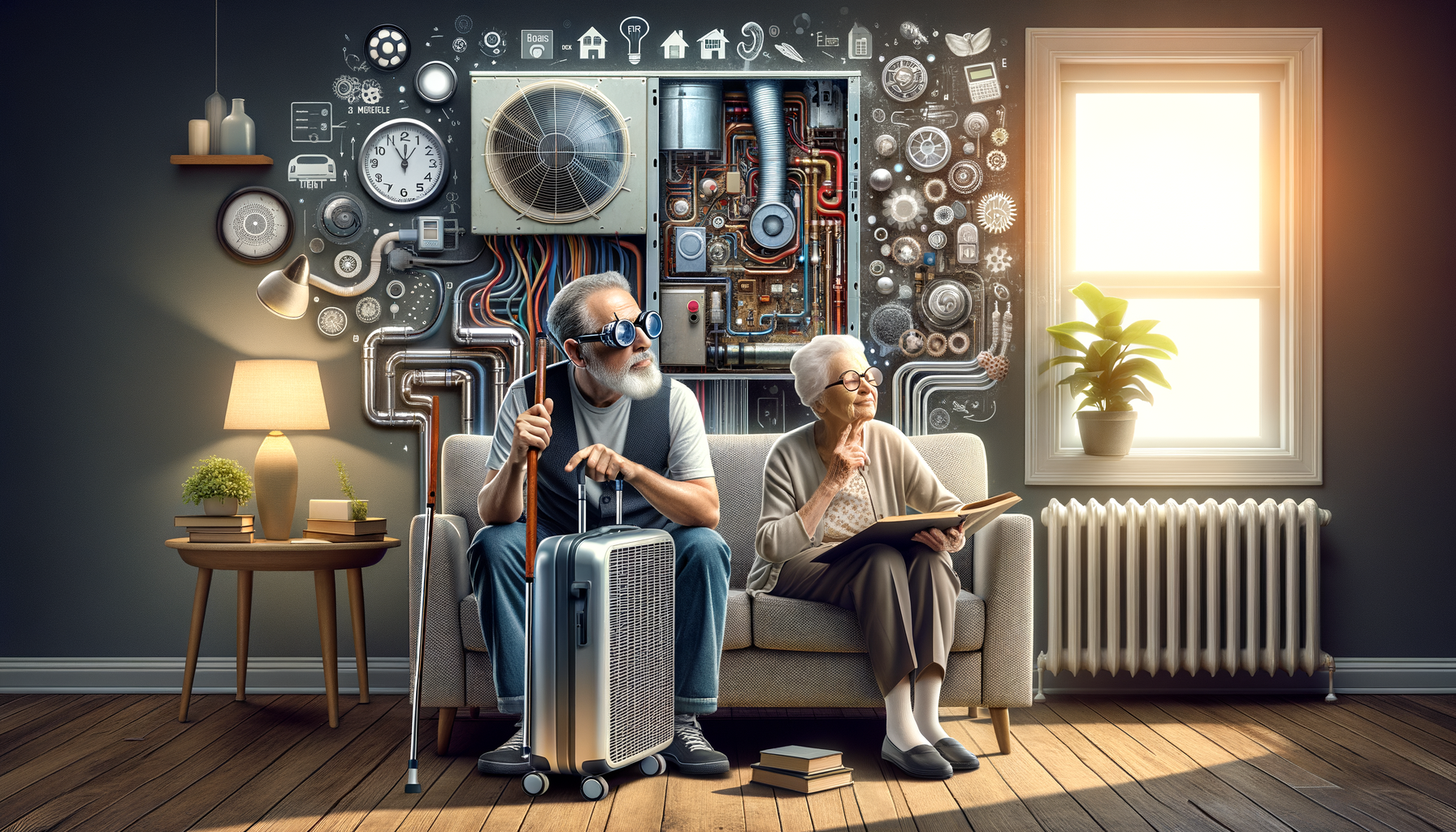The Importance of HVAC Systems for Older Adults
As individuals age, maintaining a comfortable and safe home environment becomes increasingly important. One of the key components of this environment is a reliable HVAC (Heating, Ventilation, and Air Conditioning) system. For adults aged 40 and above, the significance of an efficient HVAC system extends beyond mere comfort. It plays a crucial role in health and safety, particularly for those with respiratory conditions or arthritis.
Older HVAC systems can often be a source of concern. They may circulate dust and mold, leading to poor indoor air quality. This can exacerbate respiratory issues such as asthma or allergies, which are more common in older adults. Additionally, uneven temperatures caused by an inefficient system can worsen arthritis symptoms, making daily life uncomfortable.
Moreover, as we age, our ability to regulate body temperature diminishes, making us more susceptible to extreme temperatures. A well-functioning HVAC system ensures a stable indoor climate, reducing the risk of heat-related illnesses in summer and hypothermia in winter. Therefore, considering HVAC replacement is not just about upgrading technology; it’s about investing in health and well-being.
Signs It’s Time for an HVAC Replacement
Recognizing when to replace an HVAC system can be challenging, but there are several tell-tale signs that homeowners should be aware of. Firstly, if the system is over 10-15 years old, it might be time to consider replacement. Older systems tend to be less efficient and more prone to breakdowns, leading to higher energy bills and repair costs.
Frequent repairs are another indicator. If you’re calling a technician more often than usual, it may be more cost-effective to invest in a new system. Additionally, if certain rooms in your home are consistently too hot or too cold, this could signify that your HVAC system is struggling to distribute air evenly.
Unusual noises and odors are also red flags. Strange sounds can indicate mechanical issues, while persistent odors might suggest mold or dust accumulation within the system. Finally, if you notice a significant increase in your energy bills without a corresponding increase in usage, your HVAC system might be losing efficiency.
Benefits of Upgrading to a Modern HVAC System
Upgrading to a modern HVAC system offers numerous benefits that can enhance the quality of life, particularly for older adults. One of the most significant advantages is improved energy efficiency. Newer systems are designed to consume less energy while providing optimal performance, which can lead to substantial savings on utility bills.
Modern HVAC systems also offer enhanced air quality features. Many come equipped with advanced filters that capture dust, pollen, and other allergens, contributing to a healthier indoor environment. This is particularly beneficial for individuals with respiratory issues or allergies.
Furthermore, contemporary systems provide better temperature control and consistency. With programmable thermostats and zoning capabilities, homeowners can customize their indoor climate to suit their preferences, ensuring comfort throughout the year.
Additionally, newer systems are generally quieter and more reliable, reducing the likelihood of unexpected breakdowns. This reliability is crucial for older adults who may not be able to perform quick fixes or endure uncomfortable conditions.
Choosing the Right HVAC System for Your Needs
Selecting the right HVAC system involves considering several factors to ensure it meets your specific needs. One of the first considerations is the size of your home. An HVAC system that is too small will struggle to maintain the desired temperature, while one that is too large will cycle on and off frequently, leading to inefficiency and wear.
Energy efficiency should also be a priority. Look for systems with high SEER (Seasonal Energy Efficiency Ratio) ratings, as these indicate better energy performance. Additionally, consider systems that offer smart technology features, such as programmable thermostats, which can further enhance efficiency and convenience.
It’s also essential to consider the climate in your area. If you live in a region with extreme temperatures, you may need a system with robust heating and cooling capabilities. Consulting with a professional can help determine the best options for your specific climate conditions.
Lastly, factor in your budget. While the initial cost of a new HVAC system can be significant, the long-term savings on energy bills and reduced repair costs often justify the investment. Many manufacturers also offer financing options to ease the financial burden.
Maintaining Your HVAC System for Longevity
Once you’ve invested in a new HVAC system, proper maintenance is key to ensuring its longevity and performance. Regular maintenance not only extends the life of the system but also keeps it running efficiently, which is vital for maintaining a comfortable home environment.
One of the simplest maintenance tasks is regularly changing the air filters. Depending on the type of filter and usage, this should be done every 1-3 months. Clean filters improve air quality and prevent the system from overworking.
Scheduling annual professional inspections is also crucial. A technician can identify and address potential issues before they become major problems. During these inspections, the technician will typically check the system’s components, clean coils, and ensure everything is functioning correctly.
Additionally, keeping the area around your HVAC unit clear of debris and ensuring that vents are unobstructed will help maintain airflow and efficiency. By taking these proactive steps, homeowners can enjoy a reliable and efficient HVAC system for years to come.








